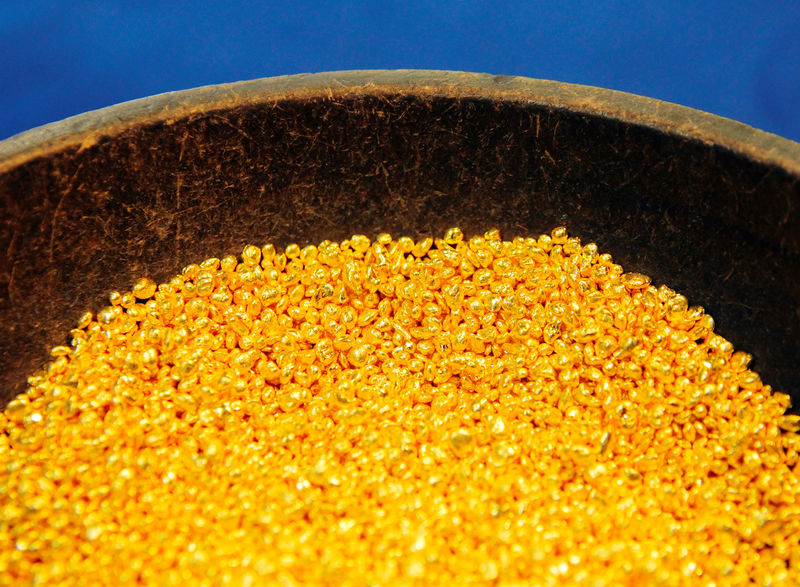Investing.com — Gold and copper prices edged lower in Asian trade on Friday as markets hunkered down ahead of key nonfarm payrolls data for more cues on the U.S. economy, although both metals marked a strong recovery from recent lows this week.
Gold was largely buoyed by a resurgence in bets that the Federal Reserve will keep interest rates steady during a June meeting, with weak labor and manufacturing data furthering such expectations.
This saw the mark its steepest drop in nearly three months on Thursday, as some Fed officials called for the central bank to consider holding rates steady in June. Progress towards raising the U.S. debt ceiling also weighed on safe haven demand for the dollar.
A weaker outlook for the dollar spurred some flows into gold, helping prices recover from over two-month lows. But the yellow metal saw some consolidation on Friday, as caution kicked in ahead of data for May.
fell 0.1% to $1,976.36 an ounce, while fell 0.1% to $1,993.60 an ounce after briefly clearing the $2,000 level on Thursday. Both instruments were up between 1.5% and 2.5% this week.
The payrolls data is expected to show that the labor market cooled through May, giving the Fed more impetus to hold interest rates steady. But given that the data has surprised to the upside for 12 of the 13 past months, investors remained on edge.
Still, show that markets are positioning for a nearly 74% chance the Fed will hold rates on June 14. High interest rates ramp up the opportunity cost of holding non-yielding assets such as metals, reducing their appeal.
Safe haven demand for gold is also expected to increase later this year as global economic conditions worsen.
This notion had weighed heavily on industrial metal prices, with copper recently sinking to six-month lows following weaker-than-expected official from China.
But the red metal rose sharply on Thursday after a showed some signs of resilience in the country’s manufacturing sector, which could herald a recovery this year.
fell 0.3% to $3.7030 a pound on Friday after rallying 2% in the prior session.
But the outlook for the red metal remains bleak this year, given that global manufacturing activity is steadily declining amid pressure from high interest rates and inflation.
Read the full article here
